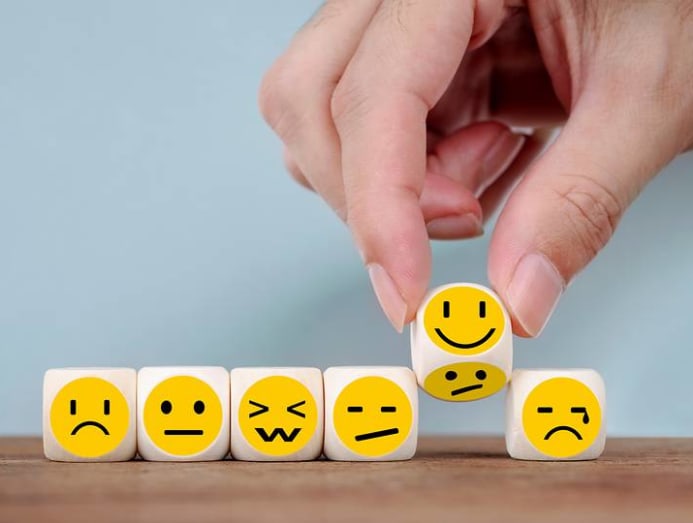We need to take self-care seriously: Our mental and physical health depend on it
With International Self-Care Day taking place on Jul 24, CNA Lifestyle looks at what this really means beyond rewarding yourself. In these COVID-19 times, it’s a lifeline against anxiety and depression.

(Photo: iStock/paulaphoto)
In the pre-COVID-19 era, self-care seemed an indulgent practice and something that was left to people with time and money to spare. But with lockdowns and social distancing measures, and everyone stuck at home, the idea has grown exponentially.
On Google, searches for “self-care” had a 250 per cent increase since March 2020, its highest levels since 2004.
Today, self-care is mainstream and a lifestyle choice, and it’s all thanks to social media. Currently, #selfcare stands at 50 million posts on Instagram, and accounts for 42 per cent of the most popular hashtags used on Instagram, Twitter and Facebook.
But self-care is more than just posting a photograph of yourself doing a face mask or DIY gua-sha on Instagram, or tweeting about the newest meditative techniques learnt. The fact that many of us are trying to prioritise self-care is telling of our current mental state.
In fact, a recent study done by Professor Tazeen Jafar from the Health Services and Systems Research Programme at Duke-NUS Medical School, found that one in three adults, particularly young women, experienced psychological distress such as anxiety, depression, post-traumatic stress and even insomnia, from COVID-19 interventions like lockdowns, social distancing and quarantine.
This is not surprising as reports have shown a surge in the number of people reaching out for help. The Samaritans of Singapore (SOS) and the Singapore Association for Mental Health both reported receiving an increase of calls to their hotlines, while newly released data by the SOS in July showed that there were 452 suicides in Singapore in 2020, a 13 per cent increase compared to 2019. The suicide rate is also the highest in the country since 2012.
The cries for help were loud enough that telemedicine service WhiteCoat decided to introduce a Mental Wellness component to its app earlier this year. This was due to an increase in user feedback and requests since the onset of the pandemic, said Justin Chow, its chief marketing officer.
READ: Why Singapore women are turning to online doctors for their sexual and mental health
PUTTING YOURSELF FIRST
Perhaps that is why the World Health Organization (WHO) has designated an entire month, from Jun 24 to Jul 24, as Self-Care Month, culminating in International Self-Care Day on Jul 24.
“The move by the World Health Organization to set up Self-Care Month and International Self-Care Day is fundamental in emphasising the need to prioritise one’s self,” said John Shepherd Lim, Chief Wellbeing Officer at Singapore Counselling Centre.
“And this is especially so during the pandemic season, where we see many working individuals struggle with the increased financial anxiety and stress arising from increased workloads and organisational changes.”

Lim added that while most people are aware of the concept of self-care, many find it difficult to practise it as they view it as a loss of productive hours.
Self-Care Month and International Self-Care Day are helpful in “shifting mindsets towards a healthier way of living and working – where we each take care of our personal needs so that we are able to give of our best selves in the long run”.
Dr Annabelle Chow, Principal Clinical Psychologist at Annabelle Psychology, agreed: “Self-care is an important factor in managing our mental health and lowering the risk of illness.”
WHY WOMEN ARE SHOULDERING A HEAVIER MENTAL LOAD
Ingrid How, Happiness Life Coach at Profound Concepts, often tells her clients that just as a car is unable to run on an empty tank, “you cannot give to others unless you give to yourself first”.
And while the experts that CNA Lifestyle spoke to agreed that both women and men need self-care, especially during these challenging times, women, in particular, need to be reminded a little more to take time out for themselves.
“What’s particularly noteworthy is the number of women who have reached out for help (on our app) during this time,” said WhiteCoat’s Chow. “With radical changes to the way we work, some of our patients, especially mothers who work full-time, have found managing work and family commitments to be extremely challenging.
“Women often have to juggle several roles, including caregiving and work responsibilities, and the pandemic has threatened this balance and brought it to the forefront.”
READ: Commentary: New mums need courage to fend off unrealistic expectations from family and work
This heavier burden is what has pushed women – especially working mums for whom working from home and home-based learning has become the norm – to feel overwhelmed and overworked, and experience burnout faster.
The boundaries between working, parenting and resting now significantly overlap, said Annabelle Psychology’s Dr Chow.
At the Conversations on Singapore Women’s Development virtual dialogue session in January, organised by the Singapore National Employers Federation and NTUC’s Women and Family Unit, panelists observed that while flexi-work arrangements allowed women to better juggle work and childcare, it was a double-edged sword that increased their stress.
As women, we are more inclined to place our family’s needs above our own, as well as engage in people-pleasing behaviours, and often end up placing self-care on a low priority.
To this, How said she tells her clients to “learn how to draw boundaries, prioritise relationships, stop feeling guilty and to stand for themselves”.
WHAT IS SELF-CARE?
“Self-care, as its name suggests, is about care of the self,” said Lim.
How added: “It is the opposite of living life on auto-pilot in today’s world of distractions, multi-tasking and relentless pace where you are just rushing from one to the next, unconscious, unaware and sometimes even ignoring your well-being needs.”

Does buying a new designer bag or pair of pretty shoes count as self-care? Or is it more about going for a long run to clear our thoughts?
While self-care has often been associated with a reward, such as taking a much-needed vacation after working hard for the year or going out for a good meal with friends to celebrate a long-awaited promotion, its increased advocacy and awareness has shifted how it is perceived.
It is now seen as a preventive measure against chronic stress and burnout, and to help you achieve a better sense of wellbeing.
“Self-care is now anything that you do for yourself that feels nourished and rejuvenating,” said Dr Chow.
“While self-care does involve taking care of our mental and emotional health, it also involves caring for your physical health and well-being, like checking in with yourself and asking yourself how you are doing and what your body is asking for.”
READ: Laughter may be surprisingly effective medicine for these trying times
Scoring that new designer bag or pretty shoes? Nothing wrong with calling it self-care, said Dr Chow, if it is something that brings you joy. Although she did caution that the feel-good factor you get from these self-care acts don’t last for very long.
If you’re looking for a self-care act with longer-lasting benefits, Dr Chow recommended incorporating enduring self-care acts like practising mindfulness, as these “long-term practices and habits (can) permanently strengthen neurological functioning” that can help your mental well-being.

Ultimately, there is no right or wrong when it comes to self-care. Plus, self-care acts need not always be individualistic. Spending time doing activities with family and friends, such as learning a new sport with your girlfriends or baking with your kids, can be equally rewarding.
When in doubt, remember this: “Self-care can look different for everyone, but to count as self-care, the behaviour should promote health and happiness for you,” said Dr Chow.
SELF-CARE IS NOT SELFISH
Perhaps one of the biggest misconceptions surrounding self-care is that taking time out for ourselves is a selfish act – we have our Asian upbringing to thank for these feelings of guilt.
The experts hoped to dispel this notion by encouraging the normalisation of self-care. “In the long run, self-care helps us to function from a place of wellness and altruism, as having our personal needs met gives us the capacity to fully devote our attention and resources to care for others and contribute to things beyond ourselves,” said Lim.
How cautioned that not being pro-active in taking care of our needs may lead to undesirable habits, such as “mindless eating and poor diet, lack of rest and exercise, unhealthy and disconnected relationships, all of which contribute to less optimal physical health, cognitive functioning and emotional well-being”.
In other words, self-care is more than just making ourselves feel good. It replenishes our mental, physical and emotional reserves, and re-energises us, so we can help ourselves and the people around us.
SIMPLE SELF-CARE ACTS YOU CAN DO FOR YOURSELF

1. GO BACK TO BASICS
Get sufficient sleep, eat a nutritious diet and get regular exercise.
2. LISTEN TO YOUR BODY
Be mindful and tune in to what your body is telling you. If you feel tired, take a break and rest, instead of forcing yourself forward.
3. CREATE A ROUTINE
Developing a daily routine helps you feel more in control of the things in your life, thereby reducing stress. Start with simple things like getting to bed by a fixed time daily or exercising at least twice a week, which can give you a sense of accomplishment and bolster positive feelings.
4. MAKE TIME TO EXERCISE
Exercising regularly not only keeps us fit, it also improves our mental health by boosting endorphin levels. This in turn reduces anxiety and feelings of negativity.
5. BE YOUR OWN CHEERLEADER
We are often our own harshest critics, from the way we look to how we handle our relationships and careers. But being so self-critical doesn’t make anything easier. So give yourself a break, and focus on the little wins instead.
Always remember that self-care should be what works for you and should never be seen as a sign of emotional or mental weakness.





